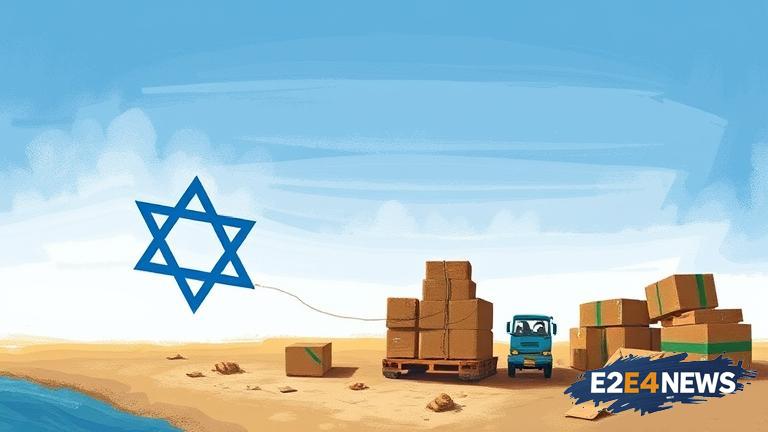The Israeli government has announced a series of measures aimed at addressing the growing humanitarian crisis in Gaza, including the establishment of aid corridors and airdrops of food and medical supplies. This move comes after weeks of intense international pressure, with many countries and organizations expressing concern over the deteriorating situation in the region. The crisis has been exacerbated by a severe shortage of food, water, and medical supplies, leaving many Palestinians on the brink of starvation. The Israeli government has faced criticism for its handling of the situation, with many accusing it of exacerbating the crisis through its blockade of the Gaza Strip. In response to the criticism, Israel has announced plans to establish aid corridors, which will allow humanitarian organizations to deliver aid to those in need. The corridors will be established in coordination with international organizations, including the United Nations, and will be subject to strict security protocols. In addition to the aid corridors, Israel has also announced plans to airdrop food and medical supplies into Gaza, in an effort to reach those who are most in need. The airdrops will be carried out by the Israeli military, and will be targeted at areas where the need is greatest. The move has been welcomed by many in the international community, who see it as a positive step towards addressing the humanitarian crisis in Gaza. However, others have expressed skepticism, arguing that the measures do not go far enough to address the root causes of the crisis. The situation in Gaza remains dire, with many Palestinians struggling to access basic necessities like food, water, and medical care. The crisis has been exacerbated by a range of factors, including the Israeli blockade, which has been in place since 2007. The blockade has had a devastating impact on the economy of Gaza, making it difficult for people to access basic goods and services. In recent weeks, the situation has deteriorated further, with many Palestinians reporting severe shortages of food and medical supplies. The international community has been calling for an end to the blockade, and for Israel to take steps to address the humanitarian crisis in Gaza. The Israeli government has faced criticism for its handling of the situation, with many accusing it of prioritizing security concerns over humanitarian needs. Despite the criticism, Israel has maintained that its actions are necessary to protect its citizens from the threat of terrorism. The situation in Gaza remains complex and multifaceted, with many different factors contributing to the humanitarian crisis. The international community will be watching closely to see how the situation develops, and whether the measures announced by Israel will be enough to alleviate the suffering of the Palestinian people. The crisis has also had a significant impact on the regional politics, with many countries in the Middle East calling for an end to the blockade and a resolution to the conflict. The United States, in particular, has been criticized for its support of Israel, with many arguing that it has not done enough to pressure Israel to address the humanitarian crisis in Gaza. The European Union has also been vocal in its criticism of Israel, calling for an end to the blockade and a resolution to the conflict. As the situation continues to unfold, it remains to be seen whether the measures announced by Israel will be enough to address the humanitarian crisis in Gaza, and whether the international community will be able to find a lasting solution to the conflict.
